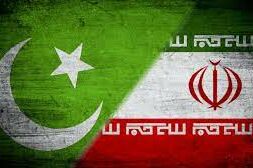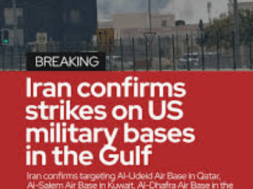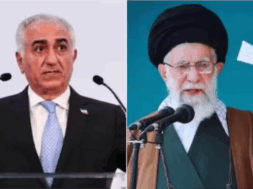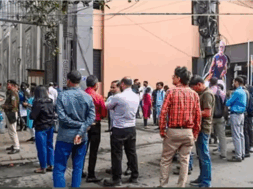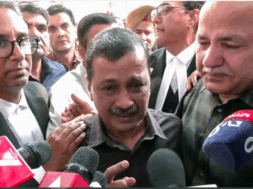
Pakistan Expels Iranian Ambassador, Recalls its Diplomat from Tehran
Manas Dasgupta
NEW DELHI, Jan 17: In an escalation of tensions following Iranian air strikes on the Pakistani province of Balochistan a day earlier, Pakistan on Wednesday expelled the Iranian ambassador in Islamabad and recalled its top diplomat from Iran and suspended all high-level visits, ongoing or planned.
A Foreign Office spokesperson told reporters Islamabad had summoned home its ambassador from Iran and that his Iranian counterpart, who is travelling, has been asked not to return. “Pakistan has decided to recall its ambassador from Iran and the Iranian Ambassador to Pakistan, who is currently visiting Iran, may not return for the time being,” Mumtaz Zahra Baloch said.
The move comes a day after Iranian missiles and drones hit targets in Balochistan on Tuesday, demolishing what semi-official media described as “two key strongholds of the Jaysh al-Dhulm (Jaish al-Adl) terrorist group.” Islamabad has condemned the attack that Iran says targeted the Jaish al-Adl terror group – which Tehran links to attacks on its security forces along the 1,000-km long border shared by the two countries.
However, a furious Pakistani government called the attack – which took place in Balochistan’s Panjgur region – an “unprovoked violation” of its airspace and a “completely unacceptable” incident that could have “serious consequences.” It has also said two children were killed in the airstrike.
Ominously, Pakistan also said it “reserves the right to respond…” Iran’s foreign ministry has not commented on the strike, or reports of children’s deaths, so far, except for state media confirming “bases were hit, and destroyed, by missiles and drones.”
Pakistan had earlier issued a “strong condemnation of the unprovoked violation of its airspace”, and said the attacks had “resulted in the death of two innocent children while injuring three girls.” The statement by the Pakistani foreign ministry said a protest had been lodged with Tehran, and the Iranian charge d’affaires had been summoned to the ministry “to convey our strongest condemnation”.
The attacks took place in the town of Panjgur close to the border with Iran, media reports said. A mosque about 50 km inside the Pakistani border was damaged in the strikes, Pakistani security officials claimed.
Tehran and Islamabad frequently accuse each other of allowing militants to operate from the other’s territory to launch attacks, but missile strikes are rare. The Pakistani side has flagged this departure from the norm, stating, “… even more concerning that this illegal act has taken place despite the existence of several channels of communication… Pakistan has always said terrorism is a common threat to all countries in the region (and) requires coordinated action…” Islamabad said on Wednesday.
As worrying is the fact that Iran’s attack came shortly after top leaders from each side met in Davos, on the sidelines of the ongoing World Economic Forum.
The group Jaish al-Adl, whose name translates as “army of justice,” was formed in 2012 as a Sunni militant group, and it operates primarily in Sistan-Baluchistan in southeast Iran, which is significant for India because the province is home to the Chabahar Port, which is of strategic importance for India.
Over the years, Jaish al-Adl has launched numerous attacks on Iranian security forces, including last month’s attack on a police station in which at least 11 police personnel were killed. Iran had warned Pakistan to act against the group after an earlier attack, in 2019, declaring that if Islamabad would not take steps, then Tehran would.
Though not directly, destructive actions of the Jaish impact India since it is developing the Chabahar Port jointly with Iran. Any terror group operating in the area is, of course, a cause for concern, for both sides.
As such, Iran’s strikes, therefore, are likely to be viewed favourably (behind closed doors) by India, particularly since the port also offers access (via Iran) to Afghanistan at a time when Islamabad is not keen on Delhi’s presence in that war-torn country.
